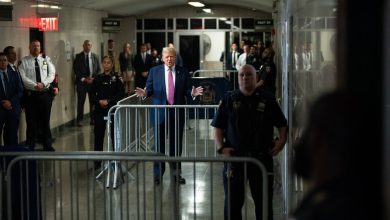Starbucks plans wage increases that won’t apply to unionized workers.

Starbucks announced Tuesday that it was raising pay and expanding training at corporate-owned locations in the United States. But it said the changes would not apply to the recently unionized stores, or to stores that may be in the process of unionizing, such as those where workers have filed a petition for a union election.
On a call with investors to discuss the company’s quarterly earnings, the chief executive, Howard Schultz, said that the spending would bring investments in workers and stores to nearly $1 billion for the fiscal year and that it would help Starbucks keep up with customer traffic.
“The investments will enable us to handle the increased demand — and deliver increased profitability — while also delivering an elevated experience to our customers and reducing strain on our partners,” Mr. Schultz said, using the company’s term for employees.
The initiative was announced as the union has won initial votes at more than 50 Starbucks stores, including several this week.
The pay increases follow a commitment to raise the company’s minimum hourly wage to $15 this summer and will include a raise of at least 5 percent for employees with two to five years of experience, or an increase to 5 percent above the starting wage rate in their market, whichever is greater.
Employees with more than five years’ experience will receive a raise of at least 7 percent, or an increase to 10 percent above the starting wage in their market, whichever is greater.
The company will also increase pay for store managers.
The plans also call for doubling the training hours that new baristas receive, as well as additional training for existing baristas and shift supervisors.
In a formal charge filed with the National Labor Relations Board, the union representing the newly unionized Starbucks workers — Workers United, an affiliate of the Service Employees International Union — has accused the company of coercing employees who were voting in a union election by suggesting that it would withhold new benefits if they unionized.
The company said it was legally prohibited from unilaterally imposing wage and benefit increases in stores where employees have unionized or will soon vote on unionization. It noted that it must bargain with a union over any wage or benefit changes.
But labor law experts said that it could be illegal to withhold wages and benefits from only unionized employees or employees voting on a union.
Matthew Bodie, a former lawyer for the labor board who teaches law at Saint Louis University, said the announced pay increases could unlawfully taint the so-called laboratory conditions that are supposed to prevail during a union election by giving employees an incentive not to unionize.
“If Starbucks said, ‘Drop the union campaign and you’ll get this wage increase and better benefits,’ that’d clearly be illegal,” Mr. Bodie said by email. “Hard to see how this is that much different in practice.”
Mr. Bodie said the pay increases could also amount to a violation of the company’s obligation to bargain in good faith because they suggest an intention to give unionized employees a worse deal than nonunionized employees. “They’d have to at least offer this package to the union,” Mr. Bodie added.
Reggie Borges, a Starbucks spokesman, did not say whether the company would make the same proposals announced Tuesday in negotiations with unionized workers but said, “Where Starbucks is required to engage in collective bargaining, Starbucks will always negotiate in good faith.”
Starbucks also said it planned to post leaflets in stores to keep employees informed, in which the company says that the outcome of collective bargaining is uncertain and risky. “Through collective bargaining, wages, benefits and working conditions may improve, diminish or stay the same,” says one of the informational sheets to be posted in stores.
Such messaging is common among employers facing union campaigns, but labor experts say it is misleading because workers are highly unlikely to see their compensation drop as a result of collective bargaining.



